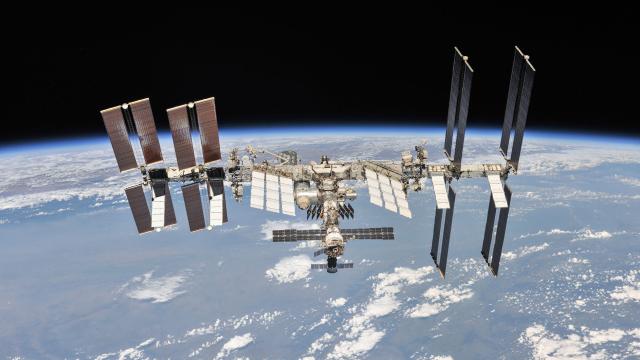Starting as early as next year, NASA will make the International Space Station available to space tourists and other business ventures. Sounds exciting, but the associated costs are far beyond what most of us can afford.
NASA doesn’t fully own the ISS, nor is the space agency currently capable of independently delivering astronauts to orbit, but that isn’t stopping it from opening the space station to the commercial sector.
In an announcement this week, NASA’s Chief Financial Officer Jeff DeWit said the space agency is making the space station available to business ventures and private astronauts “as we’ve never done before,” as reported by Yahoo News.
Many companies already use the ISS to conduct commercial research and development, but the new effort is intended to broaden the scope even further and include other activities such as space tourism, as NASA explained in a press release.
NASA said the private ISS flights will start as early as 2020, with missions lasting up to 30 days. A stay aboard the Hotel ISS, however, won’t come cheap, with The New York Times reporting a cost of $US35,000 ($50,015) per night.
Broken down, that’s $US22,500 ($32,153) for access to supplies; an additional $US11,250 ($16,076) for things such as water, oxygen and use of the toilet; and $US50 ($71) per gigabyte when using the station’s data downlink (yikes, you’ll want to limit the number of selfies you send to friends back down on Earth), as per a new NASA directive.
Extrapolate these costs over 30 days and the bill suddenly ramps up to over $US1 million ($1.4 million). And because each short-duration stay will include four seats, more maths tells us that NASA could earn as much as $US4.2 million ($6 million) per mission.
That said, NASA will only do this twice a year, so its profits are limited. The real reason for doing this is to work toward the privatisation of the space station, and to free up resources as it plans for its apparent 2024 Moon mission.
NASA also said that it won’t be involved with the shuttling of tourists to the space station. Private entities will have to charter a flight with a commercial spaceflight solution currently being developed under NASA’s Commercial Crew Program.
As it stands, that means booking a flight with SpaceX or Boeing, both of which are currently developing crew modules (though with some difficulty, in the case of SpaceX). The NYT is reporting that Bigelow Aerospace has already reserved four launches with SpaceX, and Axiom Space, which wants to fly tourists to the ISS next year, is planning to do the same.
Oh, and if you thought the nightly rate at the ISS was expensive, it’s nothing compared to the cost of getting there. A BBC post claims the cost per flight could be as high as $US60 million ($86 million), which is the same price NASA will need to pay to send its own astronauts to orbit.
Finally, NASA won’t be vetting the incoming crews. Again, that will fall upon the companies themselves, who will need to make sure that prospective private astronauts “meet NASA’s medical standards and the training and certification procedures for International Space Station crew members”.
So for a stay at the ISS, not only do you need to be rich, you basically need to be as fit and trained as a real astronaut. Good luck.
Interestingly, among the other new policies announced this week, NASA will make one space station port, along with its associated utilities, available for vendors to attach their own commercial modules, which they’ll use to conduct their various activities.
Sadly, companies won’t be able to do whatever they want up there, such as set up an extraterrestrial escape room, as they have to follow NASA’s rules.
As noted, NASA doesn’t own the ISS. It’s a co-operative program involving Europe, Russia, Canada, Japan and the United States, and it functions under a set of international agreements. It isn’t immediately obvious that the US can suddenly privatise the station, or do whatever they want with it.
“It will be very hard to turn ISS into a truly commercial outpost because of the international agreements that the United States is involved in,” Frank Slazer, the vice president of space systems for the Aerospace Industries Association, told The Washington Post back in 2018.
“It’s inherently always going to be an international construct that requires US government involvement and multi-national cooperation,” he told the Post.
Indeed, it’ll be quite some time, if ever, before the private sector fully occupies the ISS. Still, this week’s announcement strongly suggests NASA is taking a step back from ISS-related activities as it focuses on the pending Moon mission.
